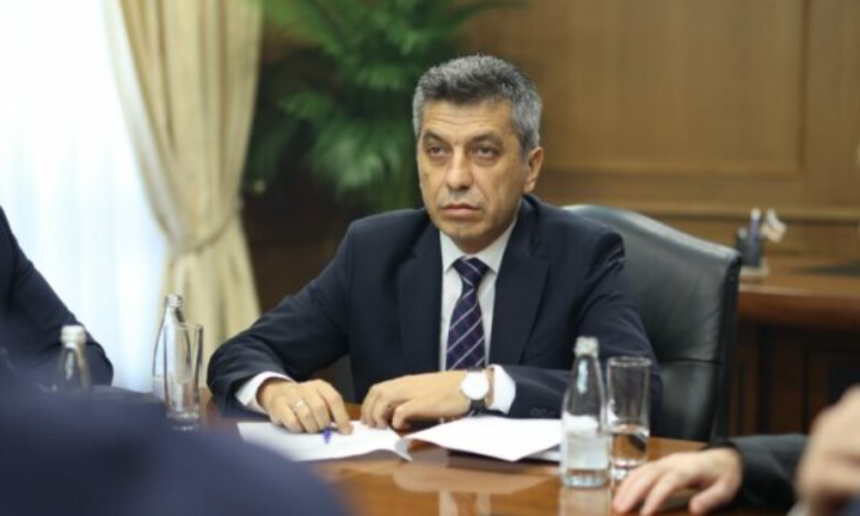Izet Mexhiti, North Macedonia’s Deputy Prime Minister, has spoken out in defense of the country’s controversial language law. The law, which was passed by the previous government, grants the Albanian language official status in many areas, but has sparked debate over its constitutionality and implementation.
In an interview with RTSH 24, Mexhiti emphasized that while the law is far from perfect, it is not being repealed. He acknowledged that the law had gaps and mentioned that it was sent to the Venice Commission for review under the previous administration. The Commission highlighted that certain provisions of the law—specifically, those concerning the use of Albanian in judicial proceedings and the uniforms of the police and military—are not in line with the country’s Constitution.
“The law was passed in an incomplete form and failed to fully guarantee the rights of Albanians, despite Albanians constituting a significant portion of the population,” Mexhiti stated. He added that the issue is not with the law itself, but rather with two key articles which need to be revised to ensure constitutional compatibility.
Mexhiti also noted that the Constitutional Court is currently addressing these issues, focusing on the two problematic articles, and not the entire language law. He insisted that the aim is to find a solution that aligns with the Constitution, without political influence swaying the court’s decision-making process.
In his remarks, Mexhiti pointed out that the previous government failed to ensure adequate representation for ethnic Albanians, despite their significant role in the country. He promised that his government would introduce a new law to ensure proper representation of Albanians in public institutions, instead of relying on a mere mechanism for inclusion.
Recent Government Efforts to Strengthen Albanian Representation
In the four months since taking office, Mexhiti’s government has taken steps to empower ethnic Albanians in North Macedonia. He highlighted a radical shift in policy, noting that the government allocated 1 billion euros for decentralization and Albanian empowerment. Additionally, the government allocated 35.5 million euros for the construction of a new campus for Albanian-language education in Skopje.
“This is just the beginning. The Ohrid Agreement, which aims to strengthen the position of Albanians, has been largely ignored over the past two decades. But now, we’re delivering on our promises,” Mexhiti said. “Albanians are no longer just numbers that secure government power. We have Albanian leaders in key government roles, including the Parliament Speaker and six ministers in the cabinet.”
He also emphasized that ethnic Albanians in North Macedonia do not need political parties from neighboring countries but a close collaboration with the Albanian government. “We are working toward a strong partnership with the Albanian government, and our focus is on strengthening decentralization and the rights of Albanians in Macedonia,” Mexhiti concluded.
The new government’s approach signals a shift toward more tangible empowerment for the Albanian community, ensuring better representation and funding for essential sectors like education and decentralization.







